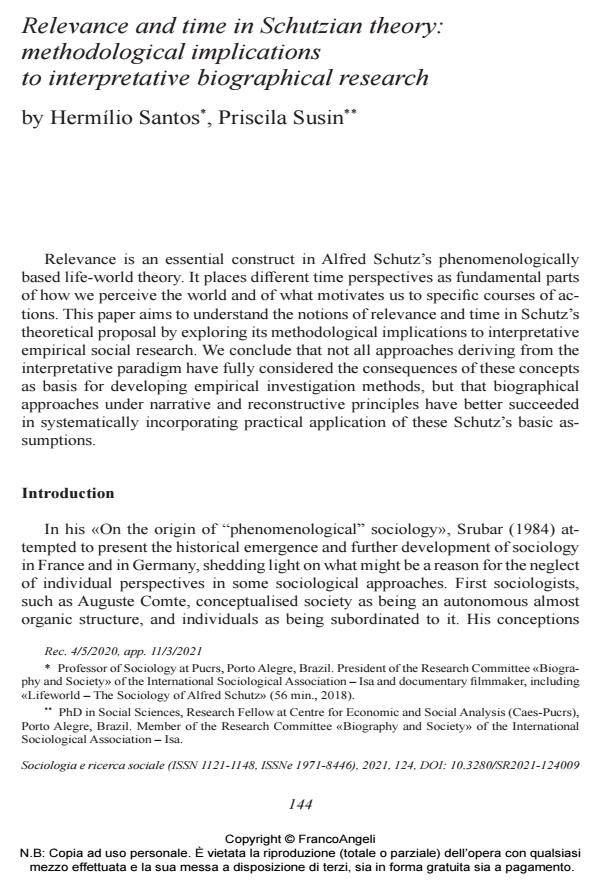Relevance and time in Schutzian theory: methodological implications to interpretative biographical research
Journal title SOCIOLOGIA E RICERCA SOCIALE
Author/s Hermílio Santos, Priscila Susin
Publishing Year 2021 Issue 2021/124
Language English Pages 15 P. 144-158 File size 178 KB
DOI 10.3280/SR2021-124009
DOI is like a bar code for intellectual property: to have more infomation
click here
Below, you can see the article first page
If you want to buy this article in PDF format, you can do it, following the instructions to buy download credits

FrancoAngeli is member of Publishers International Linking Association, Inc (PILA), a not-for-profit association which run the CrossRef service enabling links to and from online scholarly content.
Together with the concept of lifeworld, the concept of relevance plays a central role in the sociology developed by Alfred Schutz. Both concepts are in some way connected to each other, as occurs with most of the concepts he deals with, it means, the exploration of one concept leads necessarily to another one, making the understanding of Schutz’ work sometimes a complex task. The aim of this article is not so much to explore the concept of «relevance» in itself, but rather to scrutinize some implications of this idea for the sociological empirical investigation.
- Narrativas biográficas como auxílio ao método do discernimento em teologia moral Talis Pagot, in Teocomunicação /2024 pp.e46487
DOI: 10.15448/0103-314X.2024.1.46487
Hermílio Santos, Priscila Susin, Relevance and time in Schutzian theory: methodological implications to interpretative biographical research in "SOCIOLOGIA E RICERCA SOCIALE " 124/2021, pp 144-158, DOI: 10.3280/SR2021-124009